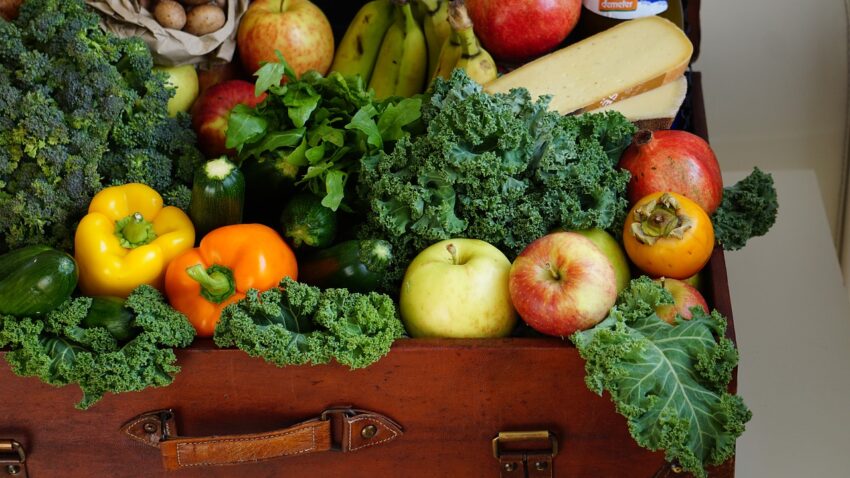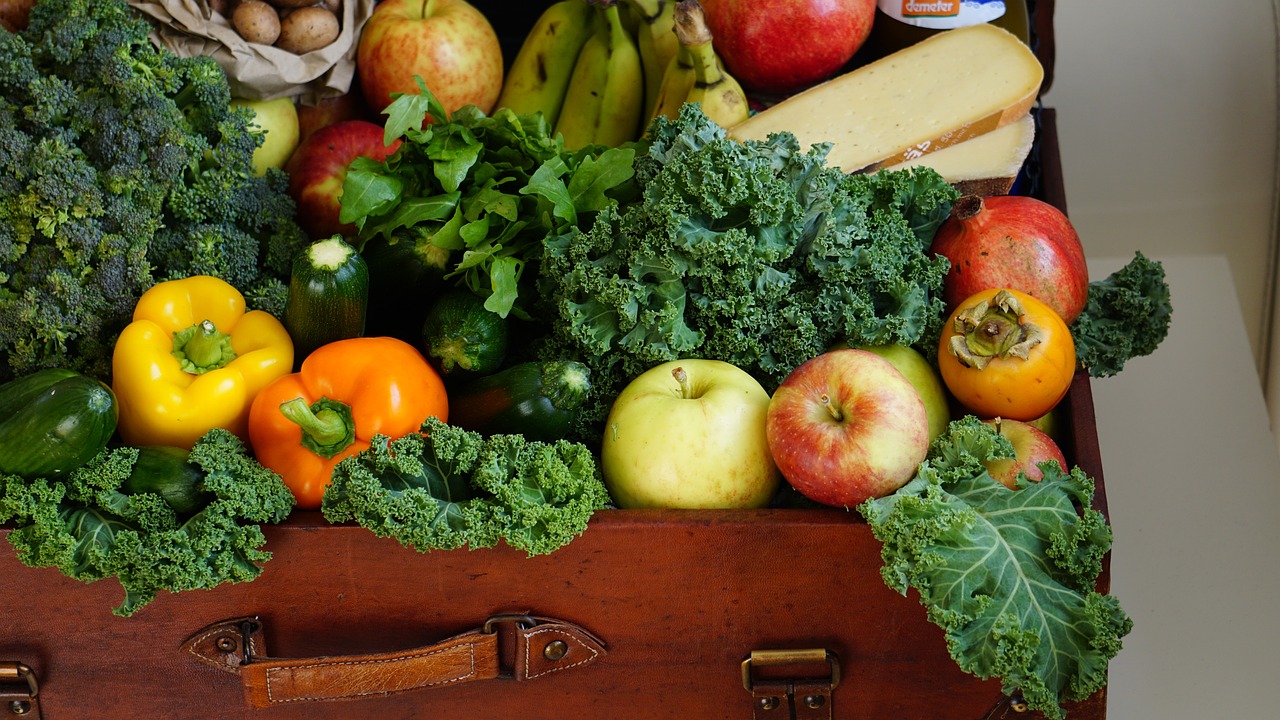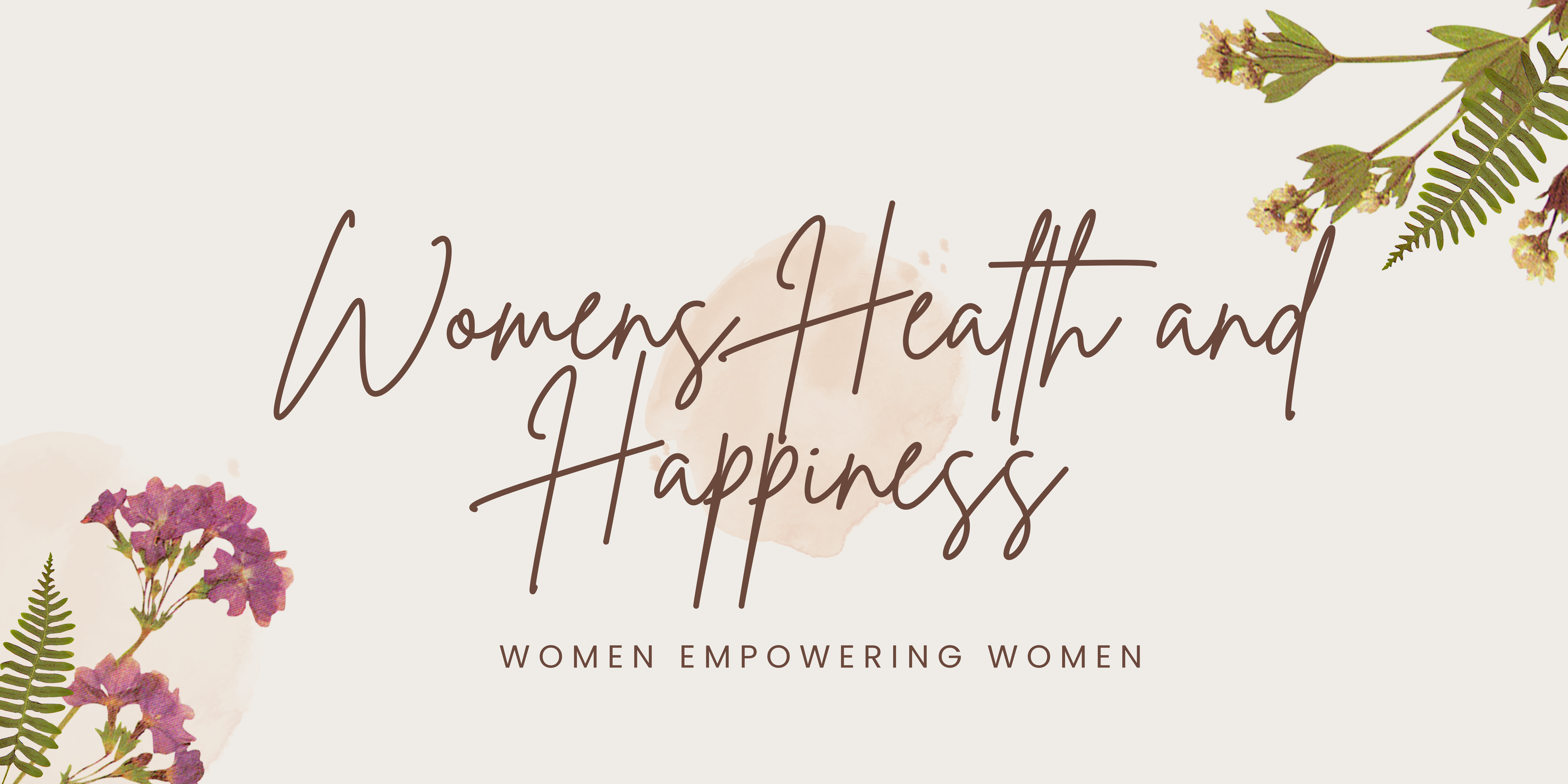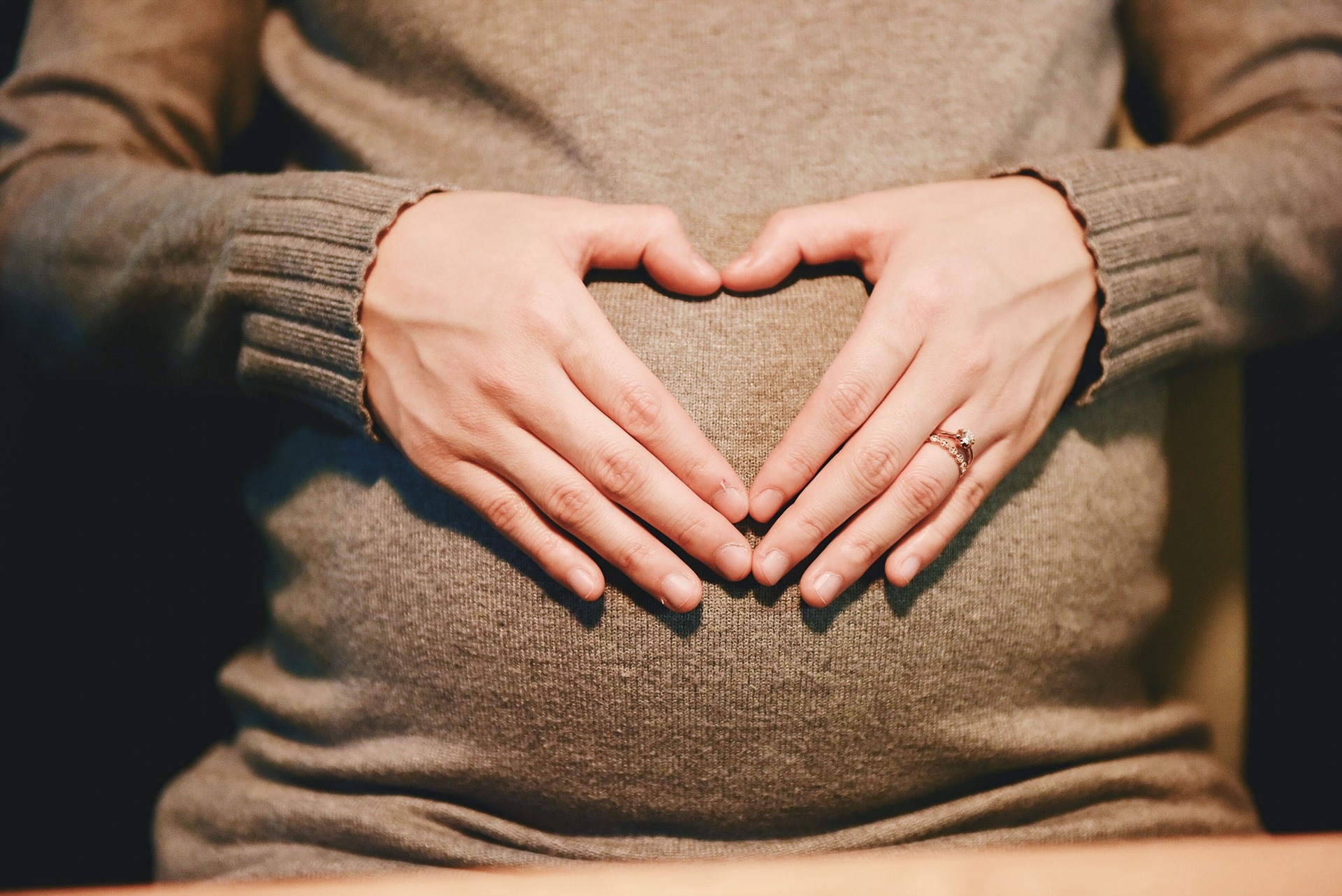Eating for Two: Nourishing Mom and Baby with a Healthy Pregnancy Diet

This post may contain affiliate links which means I may receive a commission for purchases made through links. I will only recommend products that I have personally used! Learn more on my Private Policy page.
Alright, this title is just a misnomer- you don’t really need to be doubling your portions while pregnant. In this blog post, we will talk about some dos and don’ts of pregnancy diets. One of the most significant ways you can support your growing baby and your own well-being is through a well-balanced and nutrient-rich diet. It can be hard to know what exactly is OK for baby, and to keep track of all the foods you need to avoid. I’ve included some recommended foods to consume and also those to avoid for the well-being of both you and your baby.
The Foundation of a Healthy Pregnancy Diet
1. Folic Acid-Rich Foods:
Folic acid is crucial for the early development of your baby’s neural tube. It is recommended you start taking a prenatal with at least 800 mcg of folate, starting PRIOR to conception and during the first 3 months. Here’s a list of my favorite prenatal vitamins, and why folate is so important. In addition to taking a prenatl with folate, include foods such as leafy greens, legumes, and fortified cereals in your diet to ensure an adequate intake of this essential nutrient.
2. Calcium for Bone Health:
Calcium is vital for the development of your baby’s bones and teeth. Incorporate dairy products such as milk, greek yogurt, or cottage cheese. For our vegan friends, add fortified plant-based milk and leafy greens to your meals to meet your calcium needs.
3. Protein Power:
Protein is essential for the growth of your baby’s tissues and organs. Include lean meats, poultry, fish, eggs, dairy, legumes, and nuts in your diet to ensure a sufficient protein intake. While fish is an excellent source of protein and omegas for the development of the baby, it’s recommended not to consume seafood more than twice per week, due to mercury content.
4. Iron-Rich Foods:
Pregnancy increases your blood volume, making iron crucial for preventing anemia. Consume iron-rich foods such as lean meats, beans, lentils, and fortified cereals to support healthy blood production. Occasionally an iron supplement may be necessary- but this often can cause a side effect of constipation. Iron should not be taken with dairy products, but is more easily absorbed with foods containing vitamin C.
Recommended Foods for a Healthy Pregnancy
5. Omega-3 Fatty Acids:
Omega-3 fatty acids, found in fatty fish (like salmon and trout), chia seeds, and walnuts, contribute to the development of your baby’s brain and eyes. Aim for two servings of fatty fish per week, but do not exceed this amount- due to mercury content as discussed previously. For more information on the mercury content of certain fish, you can visit the FDAs website.
Fish with a higher mercury content that should be avoided during pregnancy: Shark, swordfish, king mackerel, and tilefish.
Fish that are safe to consume in moderation during pregnancy: Salmon, trout, catfish and shrimp.
6. Whole Grains for Fiber:
Whole grains provide essential fiber and nutrients. Choose whole wheat, oats, quinoa, and brown rice to promote digestive health and steady energy levels. Eating whole grains as opposed to white breads or grains will also help to avoid spikes in blood sugar, which can cause you to feel tired after eating.
7. Colorful Fruits and Vegetables: 
Load up on a variety of fruits and vegetables for a diverse range of vitamins and minerals. Fruits are loaded with vitamins and antioxidants. The vibrant colors signify different nutrient profiles, so aim for a rainbow on your plate. The only limitation for eating excessive fruits are those individuals with gestational diabetes, so consult with your healthcare provider about fruits to avoid if you have been diagnosed with gestational diabetes mellitus.
8. Dairy or Dairy Alternatives:
Calcium is vital for both your baby’s bones and your own. Include dairy or fortified plant-based milk alternatives in your diet to ensure you’re meeting your calcium requirements. Milk or other dairy products can also help to neutralize the acidity of the stomach, aiding indigestion or heartburn that is very common during pregnancy.
9. Hydration with Water:
Staying hydrated is crucial during pregnancy. Aim for at least eight 8-ounce glasses of water per day, and more if you’re physically active. Avoid excessive juices or soda, as this may increase your risk for developing gestational diabetes.
Foods to Limit or Avoid During Pregnancy
10. Caffeine Moderation:
While some caffeine is generally considered safe, excessive intake may be associated with an increased risk of miscarriage. Limit your caffeine intake to around 200 mg per day, equivalent to one 12-ounce cup of coffee.
11. Raw or Undercooked Seafood and Eggs:
To prevent foodborne illnesses, avoid raw or undercooked seafood and eggs. Ensure that all eggs are thoroughly cooked, and choose cooked seafood over raw options. This means no cookie dough or poached eggs, and also no poke or raw sushi! This will help you avoid salmonella or other foodborne illnesses that can be harmful both to you and to the baby.
12. Unpasteurized Dairy and Soft Cheeses:
Unpasteurized dairy products and soft cheeses made from unpasteurized milk may harbor harmful bacteria. Stick to pasteurized options to reduce the risk of foodborne illnesses. It can be hard to know what exactly is pasteurized- so as a general rule of thumb if it is a product of America it has likely been pasteurized. Cheeses from other countries- like many amazing European cheeses, or Mexican queso fresco is unpasteurized, so steer clear of these.
13. High-Mercury Fish:
Some fish, like shark, swordfish, king mackerel, and tilefish, are high in mercury, which can harm the developing nervous system. Choose low-mercury options such as salmon, shrimp, and catfish. Again for more information please visit the FDAs website.
14. Limit Processed and High-Sugar Foods:
While an occasional treat is fine, limit your intake of processed foods and those high in added sugars. This was exceptionally hard for me- my pregnancy craving was gummy candies! Gummy bears, gummy life savers, gummy worms, etc. It was a real problem. Try to avoid these processed foods as much as possible. Opt for whole, nutrient-dense foods to provide the best nutrition for you and your baby.
Additional Tips for a Healthy Pregnancy Diet
15. Consult with a Healthcare Professional:
Every pregnancy is unique, and individual dietary needs may vary. Consult with your healthcare provider or a registered dietitian to create a personalized nutrition plan based on your health and lifestyle.
16. Listen to Your Body:
Pay attention to your body’s signals and eat when you’re hungry. You will likely need to eat smaller portions more frequently. Pregnancy can bring about changes in appetite, so focus on nutrient-dense foods to meet your nutritional needs. Snack on things like nuts and legumes, fruits and vegetables.
17. Consider Prenatal Supplements:
In addition to a healthy diet, your healthcare provider may recommend prenatal supplements to ensure you’re getting adequate levels of essential nutrients like folic acid, iron, and calcium. Again, here is a page with all of my favorite prenatal supplements.
A well-balanced and nutrient-rich diet plays a vital role in supporting a healthy pregnancy. By focusing on a variety of wholesome foods, staying hydrated, and being mindful of foods to avoid, you can contribute to the well-being of both you and your baby. Remember, each pregnancy is unique, so consult with your healthcare provider to tailor your dietary plan to your individual needs. Nourishing your body during this special time sets the foundation for a healthy and vibrant pregnancy journey. As always, you’ve got this mama!




I Fashion Styles
Good job on this article! I really like how you presented your facts and how you made it interesting and easy to understand. Thank you.